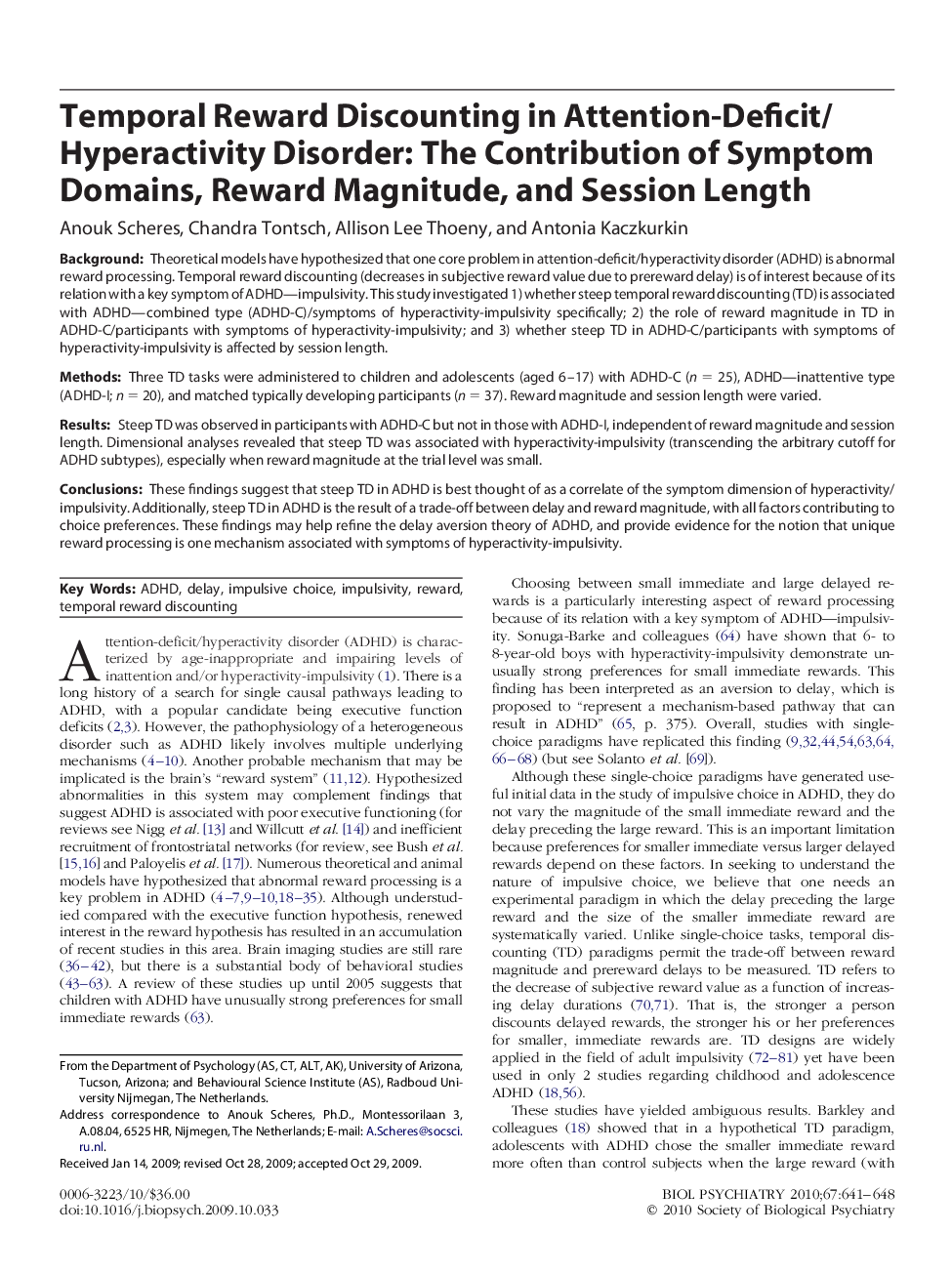| کد مقاله | کد نشریه | سال انتشار | مقاله انگلیسی | نسخه تمام متن |
|---|---|---|---|---|
| 6229106 | 1276591 | 2010 | 8 صفحه PDF | دانلود رایگان |

BackgroundTheoretical models have hypothesized that one core problem in attention-deficit/hyperactivity disorder (ADHD) is abnormal reward processing. Temporal reward discounting (decreases in subjective reward value due to prereward delay) is of interest because of its relation with a key symptom of ADHD-impulsivity. This study investigated 1) whether steep temporal reward discounting (TD) is associated with ADHD-combined type (ADHD-C)/symptoms of hyperactivity-impulsivity specifically; 2) the role of reward magnitude in TD in ADHD-C/participants with symptoms of hyperactivity-impulsivity; and 3) whether steep TD in ADHD-C/participants with symptoms of hyperactivity-impulsivity is affected by session length.MethodsThree TD tasks were administered to children and adolescents (aged 6-17) with ADHD-C (n = 25), ADHD-inattentive type (ADHD-I; n = 20), and matched typically developing participants (n = 37). Reward magnitude and session length were varied.ResultsSteep TD was observed in participants with ADHD-C but not in those with ADHD-I, independent of reward magnitude and session length. Dimensional analyses revealed that steep TD was associated with hyperactivity-impulsivity (transcending the arbitrary cutoff for ADHD subtypes), especially when reward magnitude at the trial level was small.ConclusionsThese findings suggest that steep TD in ADHD is best thought of as a correlate of the symptom dimension of hyperactivity/impulsivity. Additionally, steep TD in ADHD is the result of a trade-off between delay and reward magnitude, with all factors contributing to choice preferences. These findings may help refine the delay aversion theory of ADHD, and provide evidence for the notion that unique reward processing is one mechanism associated with symptoms of hyperactivity-impulsivity.
Journal: Biological Psychiatry - Volume 67, Issue 7, 1 April 2010, Pages 641-648